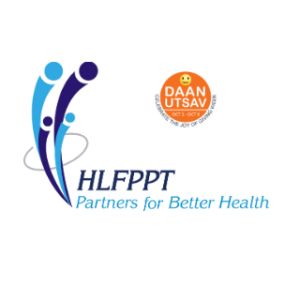The Importance of Nonprofit Public Health OrganizationsPosted by HLFPPT on December 27th, 2022 Public Health Organizations in India seek to promote health equity or the idea that everyone should have access to the same health resources. To accomplish this, organizations must identify the socioeconomic factors—such as income levels, violent crime rates, housing availability, or access to immunizations or nutritious foods—that are beyond the control of a person and pose hazards to particular communities. This aids in the creation of plans by public health professionals to lessen health inequities and help residents enhance their local community's quality of life. These plans cover chronic health issues, infectious diseases, physical and mental health, social justice, and nutrition. By addressing health inequities brought on by social, environmental, or economic causes, nonprofit public health organizations seek to be proactive in the prevention of disease or sickness. In their efforts to provide equitable care to all residents, nonprofit public health organizations place a special emphasis on attaining social justice and making a real difference for marginalized groups. Public Health Organizations in India are often the first to act when new diseases are discovered. These organizations do studies on the methods used by emerging viruses to spread and the potential areas where they can seriously affect the population. Nonprofits intervene when a disease epidemic develops into a health crisis, offering direct care, data analysis, or disease management consulting services. These fundamental elements are present in all nonprofit public health organizations and play a part in each of them: Epidemiology Various health issues, such as cancer rates or reproductive problems, may be examined by other groups with an emphasis on epidemiology among certain populations. These organizations carry out data-driven and scientific studies to find trends and causes of health issues in particular regions or among particular social or racial groups. The findings from the research can then be used to stop or manage health problems. Motivating and empowering individuals to make better decisions is one of the most crucial functions of public health organizations that have earned NABH certification. Various educational programs are provided by nonprofits to help people stop or modify unhealthy behaviors like drug, alcohol, and tobacco use. Other educational settings encourage good habits like eating wholesome foods and exercising frequently. Behavioral and Social Sciences Ecological Safety In this area, nonprofits might seek to increase community access to clean water or to educate people about sanitation. They might also help to lessen the consequences of workplace dangers like chemical exposure. Increases in respiratory conditions may be brought on by changes in pollutant exposure. By promoting environmental legislation, expanding access to asthma and cardiovascular drugs, promoting conservation, and promoting the use of public transportation, nonprofits can contribute to the fight against these problems. Large networks of care facilities are managed by some public health NGOs, which calls for strong management, financial, planning, and business development resources. By convincing decision-makers to support public health projects or by exchanging best practices with peers, other organizations assume leadership positions. An illustration. A national non-profit health services organization called Hindustan Latex Family Planning Promotion Trust (HLFPPT) focuses on RMNCH+A (Reproductive, Maternal, Newborn, Child, and Adolescent Healthcare), HIV Prevention and Control, and Primary Healthcare. Like it? Share it!More by this author |


